Nayid Contreras
Nayid Contreras is a Ph.D. candidate in the Department of Spanish & Portuguese at the University of Toronto, with a joint Collaborative Specialization in Diaspora and Transnational Studies. His research focuses on contemporary Latin American literature, particularly Colombian queer and "travesti" texts. He explores how queer temporality is portrayed in these works, reimagining traditional ideas of the future and longevity. Additionally, Nayid examines how these narratives contextualize the experiences of HIV/AIDS+ queer ill populations during and after the "AIDS crisis."
Nayid's academic achievements include receiving the SSHRC Doctoral Fellowship for the 2023-2024 academic year, as well as the Graduate Buchanan Travel Fellowship Award in 2023, the Faculty of Arts and Science Top Doctoral Award in 2019-2020, and the LAS Undergraduate Engagement Award in 2021-2022. He was also recognized as a Fellow of the University of Toronto School of Cities' Urban Leadership and Academy in 2021.
In addition to his research, Nayid has experience as a Spanish Instructor and Teaching Assistant for SPA100Y1Y (Spanish for Beginners) and the Latin American Studies program. His teaching approach emphasizes collaboration and active learning techniques. He believes in empowering students as active participants in their learning process.
Nayid is also dedicated to creating inclusive communities. He served as a Peer Mentor Navigator for racialized students at the Inclusion Peer Program Office at the University of Toronto in 2021 and currently volunteers as a representative for students with disabilities as a Student Ambassador for Lime Connect North America since 2017.
People Type:
Research Area:
- Contemporary Latin American and Spanish Queer literature;
- Queer temporality, AIDS narratives and Affect theory;
- Comparative literature, Gay and Film theory;
- Critical discourse analysis;
- Latin American Studies.
Program:
Cohort:
My dissertation represents one of the first literary, historical, and critical analyses of queer temporalities within contemporary Colombian LGBTQ+ texts and visual art that engage with the HIV/AIDS crisis. It closely analyzes how queer identities are constructed within national narratives and transformed through encounters with myself, the disease, and the passage of time. My work seeks to challenge traditional notions of the futurity and longevity while also considering individual factors such as the marginalization, visualization, and agency of HIV/AIDS+ queer individuals during and after the "AIDS crisis." As I delve into the (re)imagining of the HIV/AIDS+ queer body against the cultural and historical backdrop of the AIDS crisis, my thesis builds upon the scholarly contributions of renowned North American academics such as Jack Halberstam, Eve Kosofsky Sedgwick, Dinshaw, Edelman, Freccero, Goldberg, Haffey, Muñoz, Stockton, among others.


